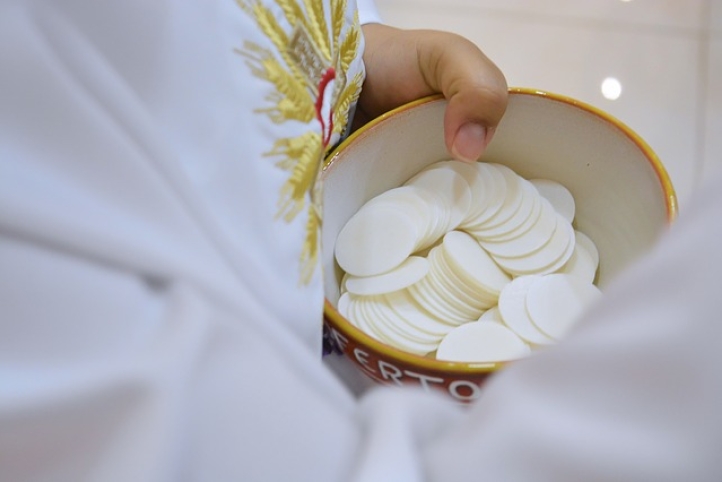
The German Bishops' Conference has denied reports that the Vatican rejected a guidance detailing plans to allow Protestants who are married to Catholics to receive Communion.
In February, the bishops voted to approve the proposal that would allow Protestant spouses of Catholics to receive Communion following a "serious examination of conscience" and after affirming the faith of the Catholic Church.
Life Site News, citing Austrian Catholic news site Kath.net, reported that that the proposal was rejected by the Holy See's Congregation for the Doctrine of the Faith (CDF) and the rejection was confirmed by Pope Francis.
The report did not indicate whether the Vatican asked the bishops to suspend the development of the guidelines, or whether it requested some modifications to the proposal.
The conference claimed in a statement that the reports of the rejection were "false," and noted that the pope has scheduled a meeting with its president Cardinal Reinhard Marx. The bishops contended that the aim of the proposal was to present a solution to cases in which "the spiritual hunger to receive Communion together (...) is so strong that it could threat the marriage and the faith."
The plan was opposed by seven bishops, who wrote a letter to the CDF last month to ask for clarification about the issue.
In the letter, the bishops asked whether bishops' conferences are allowed to make decision on the question of Communion for Protestant spouses, or if "a decision of the Universal Church" is required.
The signatories of the document were Cardinal Rainer Woelki of Cologne, Archbishop Ludwig Schick of Bamberg, Bishop Gregor Hanke of Eichstätt, Bishop Konrad Zdarsa of Augsburg, Bishop Stefan Oster of Passau, Bishop Rudolf Voderholzer of Regensburg, and Bishop Wolfgang Ipolt of Görlitz, according to the Catholic News Agency.
"From the view of the signatories, the goal in a question of such centrality to the Faith and the unity of the Church must be to avoid separate national paths and arrive at a globally unified, workable solution by way of an ecumenical dialogue," the Archdiocese of Cologne stated.
Under Canon Law, Catholic ministers are allowed to administer penance, Eucharist, and anointing of the sick to Protestants who are in danger of death or if "some other grave necessity urges it." But the said rituals can only be conducted for those "who cannot approach a minister of their own community and who seek such on their own accord." They must also "manifest Catholic faith in respect to these sacraments and are properly disposed."









